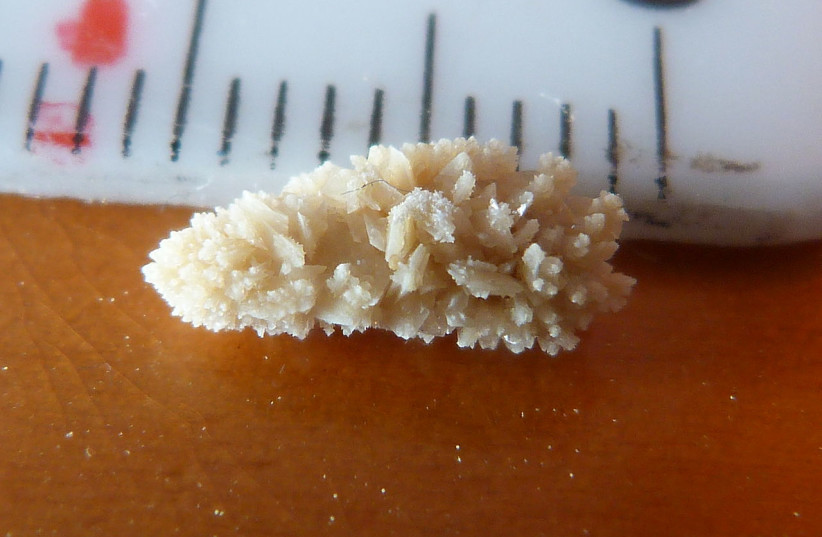Kidney stones are significantly more painful for younger people aged 31 to 50 than the elderly over 70, according to a new study conducted at Assuta Ashdod University Hospital. This was found to be true even though older people suffered from larger stones and usually have more underlying chronic diseases.
Also called renal calculi, nephrolithiasis or urolithiasis, the stones are hard deposits made of minerals and salts that form inside the kidneys. Diet, excess body weight, some medical conditions, certain supplements and medications are among the many causes of kidney stones, as is the failure to drink enough water.
Some 800 patients between 2018 and 2020 were studied by Dr. Orit Raz, director of the urology department, and Dr. Dor Golomb, a senior physician in the department. They wanted to know whether patients’ age and gender affect the way in which patients suffer from a stone and whether the results are different.
In addition, the team found that women go to the emergency room as a result of a stone in the urinary tract and feel sicker than men. Women also suffer more from nausea, vomiting, fever and increased inflammation indicators, compared to the male population.
A different study involving those under 18
Another study, carried out in collaboration with five other hospitals throughout the country, found that unlike the adult population, who are very affected by the climate and are more likely to go with kidney stones to the emergency room in the summer and fall months, children and teens under the age of 18 are not affected at all by the temperature or the seasons and that the cause of pain due to stones is different completely.

“One out of 10 people suffers from kidney stones, which involves a chronic illness, is important that patients with stones in the urinary tract remain under regular urological follow-up to avoid complications from the condition,” said Golomb.
“One out of 10 people suffers from kidney stones, which involves a chronic illness, is important that patients with stones in the urinary tract remain under regular urological follow-up to avoid complications from the condition.”
Dr. Dor Golomb
In this study, they found that, although the younger population suffers from more kidney stone pain, they manage to expel the stone on their own without the need for surgery or shock wave lithotripsy; this is compared to the older population, which is less painful but comes with larger stones - which sometimes require surgical intervention.
